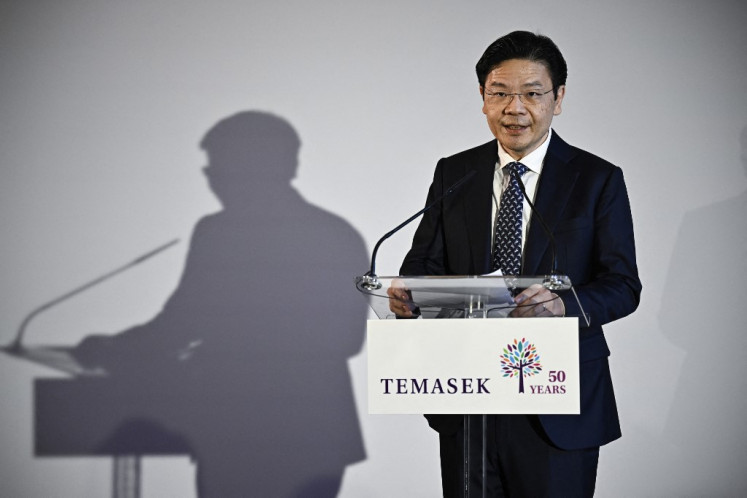Local consumers say ‘In brands we trust’: McKinsey report
Consumers in Indonesia are more brand conscious than their peers in the region, opting for well-known and expensive brands when shopping, a report from McKinsey & Company has concluded
Change Size

C
onsumers in Indonesia are more brand conscious than their peers in the region, opting for well-known and expensive brands when shopping, a report from McKinsey & Company has concluded.
Indonesians were less likely to compare shops to find the best price for a product, as they held a brand’s reputation in high esteem and were less sensitive to prices, said a report titled “The New Indonesian Consumer” that was released on Thursday.
The report, which surveyed 5,500 respondents in 44 cities in 24 provinces in Indonesia, said that around 47 percent of those surveyed agreed that well-known brands were of high quality, more than the 42 percent of Chinese and 32 percent of Taiwanese who answered positively when questioned by McKinsey in similar surveys.
Meanwhile, 36 percent of Indonesians agreed that a higher price tag was a guarantee of high quality, as opposed to only 32 percent of Chinese and 9 percent of the Taiwanese surveyed.
“Brands exert an unusually powerful influence on consumer decision-making in Indonesia, far more than elsewhere in Asia, including in China,” the report said.
Feedback from relatives and friends influenced Indonesians’ decisions to buy specific products, according to the US-based consulting firm. While local consumers still overwhelmingly favored television and word-of-mouth as sources of product information, digital media such as Facebook, Twitter and BlackBerry Messenger service are becoming increasingly important.
For companies with strong brands aiming to tap the Indonesian market, which is driven by domestic consumption, business opportunities abound in the nation’s largest cities as well as in emerging second- and third-tier cities that might eventually further drive economic development in the nation, the report said.
“We found, for example, that consumers in Surabaya were far more brand oriented than those in the Jakarta cluster.” Surabaya, the capital of East Java, is the largest city in the nation, after Jakarta.
McKinsey advised global companies seeking to enter or expand in Indonesia to adopt the local culture. “KFC, for example, has demonstrated early success in Indonesia by including rice and soup on its restaurants’ menus.”
Existing companies should invest in new channels given signs that digital-based transactions, such as e-commerce, had been gaining a footing in Indonesia, the report said.
On the food and beverage business, McKinsey noted the rise of minimarkets and convenience stores, which it said reflected a shift in local shopping preferences.
According to the report, minimarkets now account for at least 41 percent of the monthly food and beverage expenditure of consumer-class Indonesians, higher than the 39 percent recorded at hypermarkets and supermarkets.
This is the second report on Indonesia made public by McKinsey in the last three months. In September, the firm released a report that predicted that Indonesia would overtake Germany and the UK to become the world’s seventh-largest economy by 2030.
McKinsey noted that Indonesia was a lucrative market for multinational companies, given that domestic consumption contributed 61 percent to the nation’s gross domestic product (GDP) in 2010, which it said might top 65 percent by 2030.
“We see tremendous potential in Indonesia’s consumer market,” McKinsey & Company president director Arief Budiman said on Thursday. “With consumer spending expected to increase by 7.7 percent a year — that presents a trillion dollar business opportunity by 2030.” (sat)









